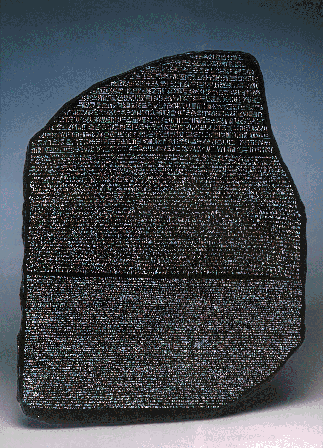
Structure is most valuable in elucidating function of an otherwise uncharacterized protein, when it reveals that two proteins are distant evolutionary relatives.
Because the two proteins came from a single ancestor, it is likely that they retain some similarity in function.
Moreover, the structure may provide the information necessary to evaluate whether the functional site characteristics are indeed conserved.

The Rosetta Stone was used by scholars to decipher ancient Egyptian hieroglyphics using "homology" with the Demotic and Greek languages.
Can protein 3D structures be used like the Rosetta Stone to decode the functions of genes identified in the various genome projects?
Structural Genomics
Structural genomics projects are being driven by two fundamentally antithetical goals.
- to yield a complete representative set of protein folds.
- to provide insights into the function of genome-encoded proteins, principally by recognizing homology between two structures with the same fold, but whose similarity could not be detected by sequence analysis.
Next | Back